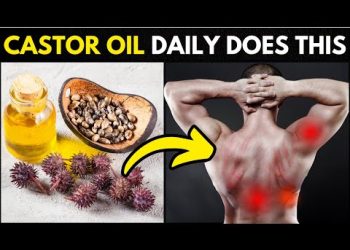Introduction to Hypertension and Nutrition
Hypertension, commonly known as high blood pressure, is a prevalent health condition that affects millions worldwide. It poses a major risk for cardiovascular diseases and requires effective management to maintain overall health. One of the natural approaches to controlling high blood pressure is through proper nutrition. This article covers five essential vitamins that play a significant role in managing blood pressure levels.
Vitamin D: The Sunshine Vitamin
Vitamin D is often referred to as the sunshine vitamin because our bodies produce it when exposed to sunlight. This vitamin is crucial for maintaining vascular health. Studies suggest that Vitamin D deficiency is linked to an increased risk of hypertension. By ensuring adequate levels, either through sun exposure or supplementation, you can support healthy blood pressure.
Vitamin C: An Antioxidant Powerhouse
Vitamin C is a powerful antioxidant known for its numerous health benefits. It helps in the production of collagen, an essential protein for blood vessels. Additionally, Vitamin C aids in reducing oxidative stress, which can lead to the stiffening of arterial walls and increased blood pressure. Consuming fruits and vegetables rich in Vitamin C can be beneficial in managing hypertension.
Vitamin E: Protecting Your Blood Vessels
Vitamin E is another antioxidant that plays a vital role in protecting your blood vessels from damage. It helps in reducing oxidative stress and inflammation, both of which contribute to hypertension. This vitamin is found in nuts, seeds, and green leafy vegetables. Incorporating these foods into your diet can support cardiovascular health.
Vitamin B6: Balancing Your Blood
Vitamin B6 is important for the production of hemoglobin and neurotransmitters. It also helps in regulating homocysteine levels, which, when elevated, can increase the risk of hypertension. Vitamin B6 can be found in foods such as chicken, fish, and bananas, making them excellent additions to your diet to help control blood pressure.
Folic Acid: Supporting Cardiovascular Health
Folic acid, also known as Vitamin B9, is essential in the synthesis and repair of DNA. It plays a significant role in controlling homocysteine levels. High homocysteine is associated with damage to the blood vessels and hypertension. Including foods rich in folic acid, like leafy greens and citrus fruits, can be beneficial for maintaining a healthy heart.
The Role of Diet in Blood Pressure Management
While vitamins are crucial, they are not the sole factor in managing high blood pressure. A balanced diet low in sodium and rich in vegetables, fruits, lean proteins, and whole grains is essential. Such dietary habits, alongside these vitamins, can create a synergistic effect, aiding in better control of blood pressure levels.
Lifestyle Factors
Apart from nutrition, lifestyle plays a significant role in managing hypertension. Regular physical activity, maintaining a healthy weight, and managing stress are all integral components. These factors, along with proper nutrition, help create a comprehensive approach to reducing high blood pressure.
Consultation with Healthcare Providers
Before making any significant changes to your supplementation or diet, it’s important to consult with healthcare professionals. They can provide personalized advice and ensure that the dietary changes will not adversely interact with any existing medications or conditions.
Conclusion
Incorporating these five vitamins into your diet can be a beneficial strategy in managing high blood pressure. However, it’s important to adopt a comprehensive approach that includes a balanced diet and healthy lifestyle choices. By doing so, you can work towards maintaining optimal blood pressure and overall cardiovascular health.











